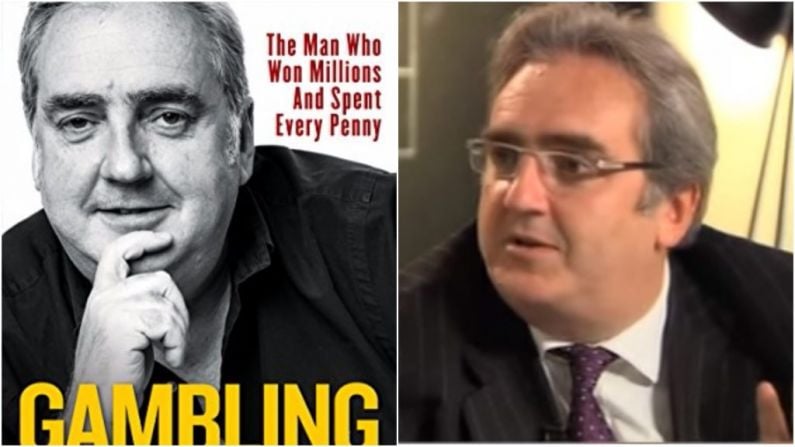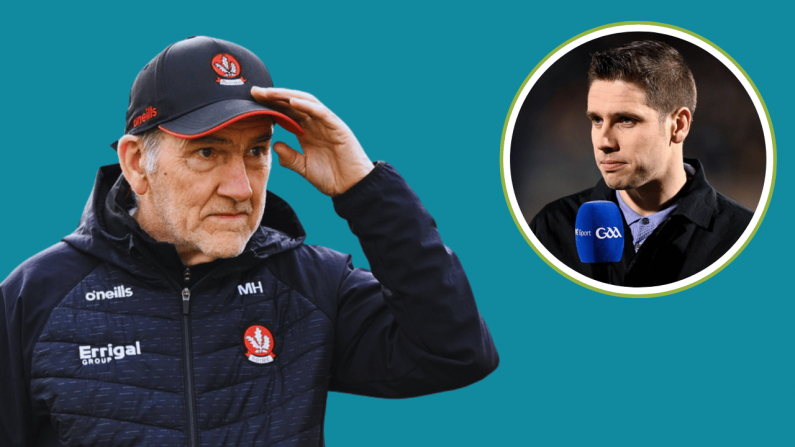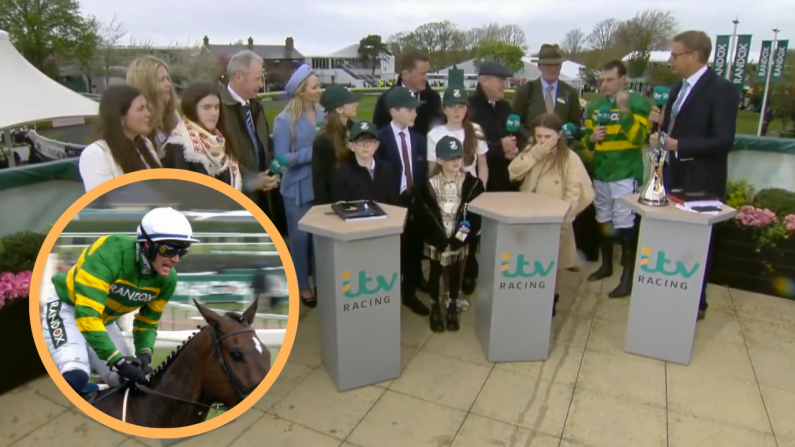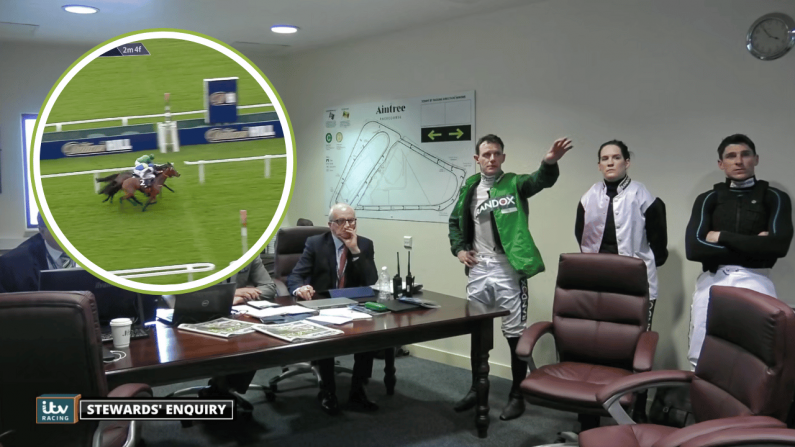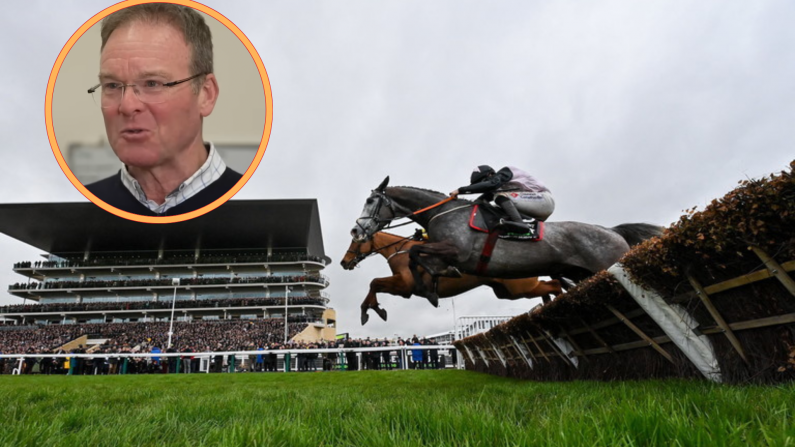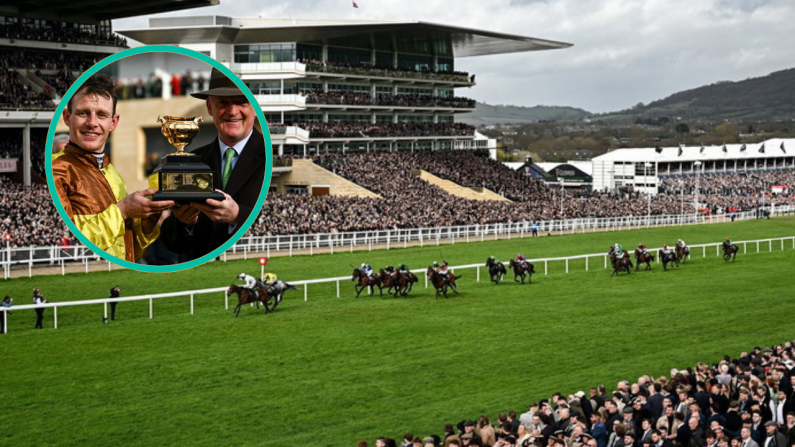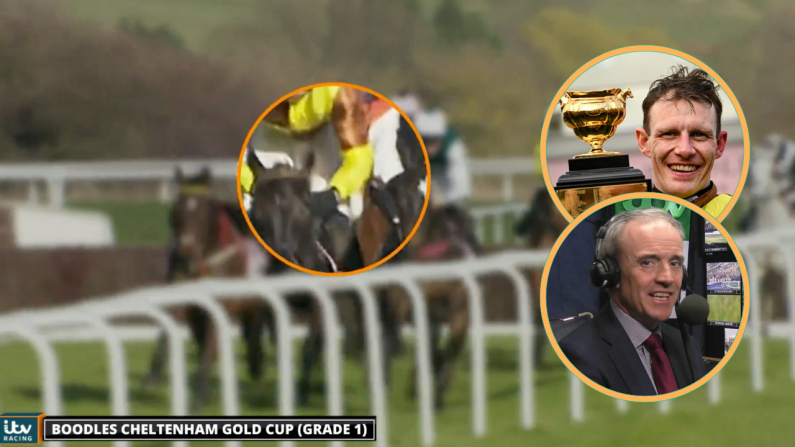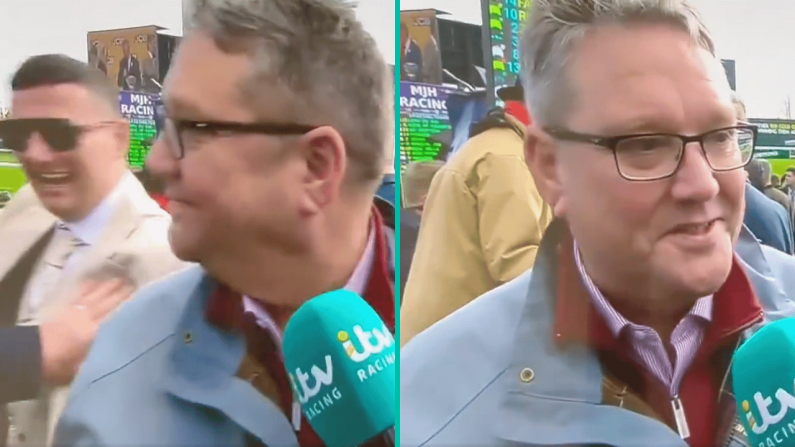Harry Findlay is the kind of man you meet once in a lifetime, but it can only be thus: he doesn't believe in the afterlife.
There won't be any pearly gates. If there are, there won't be any racing or betting or any great food. In many ways, it would be even worse to have to live without the good things. It would be even worse to live without a 4/5 chance at Goodwood in the first.
Imagine going to heaven and finding out that there's no racing, no betting, no good food and no women. What's the point in all of that?
If you were Harry Findlay, you wouldn't need to believe in any of that either. In 55 years of living, he has done exactly that: plunging depths deeper than hell and soaring heights to send angels spinning with vertigo.
He won the Cheltenham Gold Cup two years before he was banned from horse racing altogether. He has sat on the bench for the Aussie cricket team and lain homeless on city streets. He has flown first class across the world and was once thirty minutes from dying in a commercial flight. He has walked out of race tracks with thousands of pounds in his pocket and into prison with drugs up his ass.
He has quarreled with Don King and bantered with Roger Federer. He's been unbearably poor and unfathomably rich, often within the same day. He has made - and either given away or spent - more than £20 million.
Harry Findlay, as his book describes him, is "the man who dared to risk it all".
*****
Findlay's remarkable life is told in a new book, Gambling for Life, penned by Times journalist Neil Harman. He agrees to meet me in the lobby of a Dublin city hotel, but is running late. More fool me for scheduling an interview during the 2.10 at Goodwood.
The hotel lobby is a blitzkrieg of beige, cream, and slanting white lights, but Harry Findlay cuts across it all blazing a trail of colour. "I had 1600 quid on that horse. You can't beat that buzz". Garrulous and gregarious, Findlay is coarse but coruscating company: his speech burbles along at a million miles a minute, peppered with mentions of betting markets, triumphs, disasters filtered through cockney slang. "Putting a monkey on a skinny" is met by the blank stare of an interviewer who hasn't get a, well, monkeys'.
He is clear, however, when I ask him if he is a gambling addict.
No, I consider myself a gambler. An out and out gambler.
Findlay was 15 when his mother brought him to a dog track to disabuse him of any gambling notions. The plan was for him to lose all of his meagre pocket money, and be convinced that betting was a fools' errand. Margret Findlay's ploy was working, as her son had lost his full £4 kitty within three races. She relented when he asked her to borrow another £2, assuming it would teach her son a lesson about the dangers of falling into debt. But Harry's final gamble was a winner, and £2 became £6. Two days and a few bets later, Harry had £85. "I knew I was a genius from that moment", trumpets Harry. "And in essence, I was fucked!"
Barely a day has gone by since without Findlay betting on some top-level sport or another. Dogs are his major passion, although he has had long, lucrative romances with horse racing, snooker, tennis, football, and rugby league. His policy upto the last seven years was to find the shortest-priced favourites, and bet big.
Findlay also has an ability to spot a winner and it is when discussing this that the "genius" tag is eeked out. "If you're not a judge of greatness, you'll never be a great judge. You can be a half-decent judge, but you can't be a great judge unless you can spot greatness as soon as you see it". Findlay has travelled the world to take in some of the biggest sporting events around, so has had the chance to see some ultimately legendary careers at embryonic stages. "I met Roger Federer when he was a young kid and told him he was a superstar".
The spotting of talent is not the only way he has made money, however.
You are better off finding a good bad 'un than a good good 'un. The tennis players I've won the most money out of are the ones I know aren't that good. Jean-Rene Lisnard. The first time I saw him was against Tommy Robredo in Paris. And I knew straight away that he was just a shit tennis player. I must have opposed him 25 times. Grosjean retiring against him in Australia was the only time I lost on him.
Increasingly tight odds has curbed Findlay's wagering of huge sums. He describes a £3,000 bet on the National Rugby League as his biggest regular bet these days, and if this seems a large sum to most readers, consider the sum Findlay lost on New Zealand at the 2007 World Cup.
Findlay was hardly alone in believing the All Blacks would win the competition, but he may have been the only person to back them to the tune of £2.5 million.
*****
Only once does Findlay use the word "depression" in relation to his gambling career. It wasn't after the '07 World Cup, but instead in 2013, when he was bankrupt having attempted to set up Coventry as a Mecca for British greyhound racing. He ploughed £1.7 million of his own money into the track, but felt unsupported by the Greyhound industry, and his failure to attain a Bookmakers Afternoon Greyhound Service contract made it nigh on impossible to turn a profit. He stopped just shy of selling his daughter's flat, and ultimately the Coventry dream died.
This, Findlay admits, was the most difficult time of his life, and writing the book provided important in overcoming it. "I wrote the book for two reasons. The first was to tell the truth about the BHA, the dogs and the bankruptcy, which was all fucking vile. For eighteen months, I didn't give a fuck about the truth, I didn't get a fuck about anything. But the book proved cathartic. Gradually, I realised, that even if the book's not a success, at least I have it all down on paper for my kids".
Findlay is most recognisable as the part-owner of Denman, the 2008 Cheltenham Gold Cup winner, but within eighteen months of that success, Findlay was shunned from the sport. In 2010, he was penalised for betting against his own horse, Gullible Gordon. Two years earlier, he backed him to win with £80,000, but just before the race, he laid down £18,000 on his horse to lose, fretting that the jockey would not give the right ride. His late instincts were right: Gullible Gordon lost, yet Findlay lost much more in this scenario than he would have had his horse won.
A similar pattern in betting a year later led to an investigation, with Findlay then warned off from the sport and given a six-month suspension. On appeal, it was admitted that Findlay had broken the rule on a technicality but there was no suggestion that Gullible Gordon had not run to his full potential.
Amid the long wrangle, however, Findlay found very little support in the racing community. He had always been incongruous at the biggest meetings - a piece in the Irish Independent after the Gold Cup win made unflattering comparisons with Harry Enfield's character Loadsamoney, after which the paper published an apology to Findlay - and Findlay says that his losses were always met with glee.
People were so fucking happy when I'd back a loser. They'd celebrate like it was fucking Christmas.
People say I'm the Marmite man, I am the fucking Marmite man. I should change my name to the fucking Marmite Man. There is a certain percentage of people that cannot fucking stand me.
I was brought up in a different era. When I was in my late teens and early twenties, if you didn't make bookmakers dislike you and you won money, you had no chance of getting money on. It was all part of the image. I used to turn up at the dogs smoking a spliff, getting lairy, and it stuck.
Tony McCoy was among few to support Findlay, calling the BHA's warning off "a decision taken by those who obviously had no understanding of racing or racing people".
Findlay has no interest in ever again owning a horse - at one point, he had a part-share in a stable of almost 40 horses worth more than £2 million - maintaining that his first love is dogs. He fell hard for coursing in Ireland, and it was at coursing meets across Munster he met one Jimmy Barry-Murphy. Findlay's book is written in the third-person, but it ends with his personal testimony to a few of his favourite sports stars, including Tiger Woods, Martina Navratilova, Jimmy White, Roger Federer....and Jimmy Barry-Murphy.
He's the last person in the world you'd put down as a rock star. I remember the first thing that struck me when I first met him was how fast he could drink four fucking pints of Murphy's! He should be a world record holder!
*****
Findlay says he wrote the book for a second reason, and it is the first question he asks me: "did you laugh?"
Myriad tales of madness unspool throughout the book. Findlay did time in Brixton prison for credit card fraud in his early 20s, and was released home for 48 hours a week prior to his release, whereupon he fulfilled his a fellow inmate's desire to return to prison with some contraband. It ultimately leads to a story this absurd conversation between Findlay and his mother:
Son, have you ever had anything up your bum before?
He hijacked an auction to be a substitute on the Australian cricket team for an ODI against South Africa, pledging £30,000 to earn his spot:
Their ideal 13th man would have been a 10-year-old from New South Wales with an autograph book who'd sit in the corner quiet as a mouse, and here was a big fat 40-year-old Pommie Punter with opinions on everything!
And he claims to have saved a commercial flight to Bangkok from crashing. Findlay flew first-class, but resisted an urge to guzzle a couple of bottles of expensive champagne, instead electing to swallow a couple of sleeping tablets. Later that night, he and his friends were glued to a hotel television, hoping a reel of bets on the League Cup semi-finals would land, when a news clip snaffled their attention:
We weren’t paying that much attention and then, at the bottom of the picture, it said something about a miracle flight, and they were interviewing Qantas staff in Bangkok about this plane that had landed on battery power because everything else had gone. We turned up the volume. I said: ‘Fuck me, that was the plane we were on.
A water leak in the first-class galley knocked out the electricity to the plane's systems, which began to shut down one-by-one with around 25 km to go until their destination. The plane was forced to descend 10,000 ft running on reserve battery power, gliding to the airport with numerous fuel pumps along with the autopilot, radar, cabin pressure, and autothrottle systems dead. A formal investigation years later found that the plane would have been at a "considerable risk" had the flooding began thirty minutes earlier.
If I’d have done what everyone else usually does in first class, which is going on the piss, drinking the best part of two bottles of wine and having to use the toilet five times, the leak would have happened much earlier and the plane would surely have gone down. I reckon I saved the flight.
These tales, and the life that Findlay has lived, are important in understanding his philosophy toward gambling. He has been broke plenty of times - he had sold the deeds on his house and was on the verge of selling his mother's during the '98 World Cup before ending up with £2 million by the time France lifted the trophy - but Findlay has never been one to hoard money. Some of his money is kept as security for his wife Kay and his two daughters, and aside from the sums he pledges to charity, the rest is for spending.
People don't realise the psychology of being a big spender. Even if I'm skint, I know I've spent £20 million. I don't want to be skint and I won't be. People use religion as a crutch in life, but having spent that amount of money is a great crutch, to be able to look back and think about what we did.
Even when I was a very young boy, four, five, or six, my parents would always get The Daily Telegraph. I would always read the obituaries. It would say such-and-such has died and left one million, and so on. And I remember thinking, wouldn't it be much more interesting if they said in brackets how much they'd spent?
Right now, if someone dies, say that guy Patrick Moore [a British astronomer]. 'Oh, did you hear that Patrick Moore left £1.5 million?' Well if I was Patrick Moore, I'd be fucking gutted. Wouldn't you rather spend it on claret? He can't drink it in claret now.
Once I'm gone I really don't give a fuck what they do. They could throw me in a dump. I really couldn't give a fuck.
*****
Before I leave Findlay to chase a next winner in his aleatory heaven, I do ask for a tip. The journalist in me seethes with jealousy at the access Findlay has finagled to the world's biggest sportspeople, Federer, Nadal, and the All Blacks among them.
I've never, ever met a sports star and told him he played shit. So there's one tip.
Gambling For Life: Harry Findlay by Neil Harman is available now.
See Also: Faster Than Senna - The Greatest Irish Sportsman There Never Was

